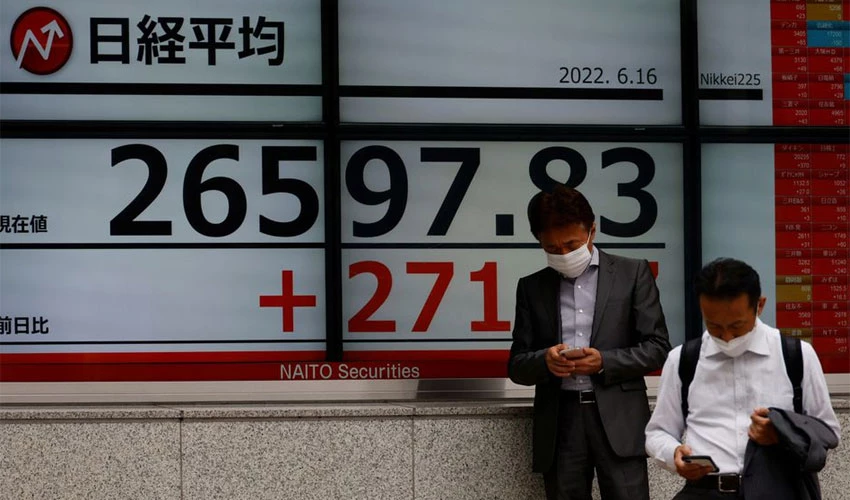NEW YORK, July 2(ABC): Asian shares were ending a rough quarter in a sombre mood on Thursday amid fears central banks’ cure for inflation will end up sickening the global economy, though it is proving to be a fillip for the safe-haven dollar and government bonds.
Policy makers on Wednesday reiterated their commitment to controlling inflation no matter what pain it caused, and data on US core prices later in the session will only underline the extent of the challenge.
“Inflation can be sticky,” warned analysts at ANZ. “It is broadening from goods to services and wage growth is accelerating.”
“Even with rapid rate rises, it will take time for tightness in labour markets to unwind, and that means inflation can stay higher for longer.”
That suggests it is too early to pick a peak for interest rates or a bottom for stocks, even though markets have already fallen a long way.
The S&P 500 (.SPX) has lost almost 16% this quarter, its worst performance since the very start of the pandemic, while the Nasdaq (.IXIC) is off an eye-watering 21%.
Early Thursday, S&P 500 futures and Nasdaq futures were both down 0.3% with little sign as yet that the new quarter will bring in brave bargain hunters.
MSCI’s broadest index of Asia-Pacific shares outside Japan (.MIAPJ0000PUS) eased another 0.4%, bringing its losses for the quarter to 10%.
Japan’s Nikkei (.N225) fell 0.8%, though its drop this quarter has been a relatively modest 4% thanks to a weak yen and the Bank of Japan’s dogged commitment to super-easy policies.
The need for stimulus was underscored by data showing Japanese industrial output dived 7.2% in May, when analysts had looked for a dip of only 0.3%.
Chinese blue chips (.CSI300) added 0.6% helped by a survey showing a marked pick up in services activity.
Analysts at JPMorgan are looking a major rebound in China in coming months and felt that, with so much bad news priced into world markets, positioning argued for a bounce.
“It is not that we think that the world and economies are in great shape, but just that an average investor expects an economic disaster, and if that does not materialize risky asset classes could recover most of their losses from the first half,” they wrote in a note.

